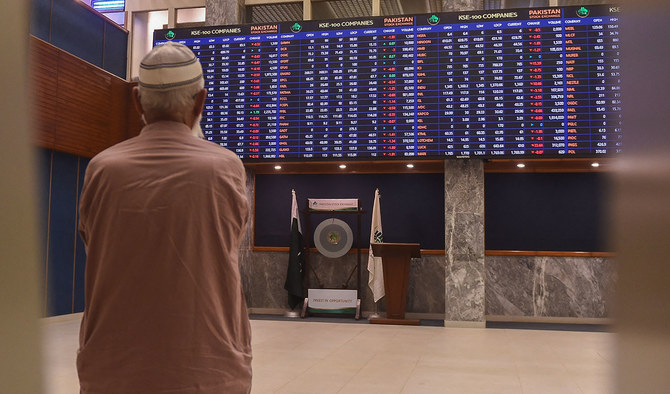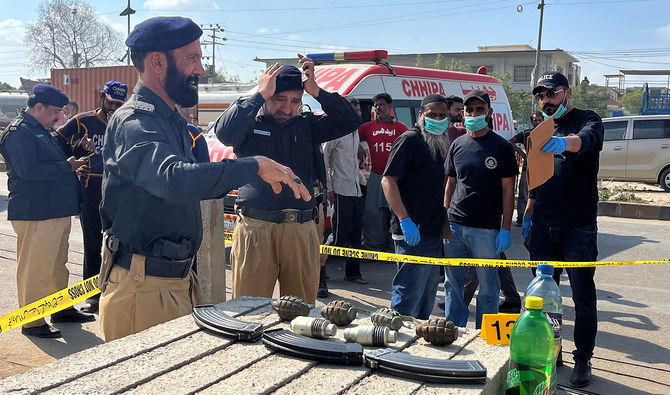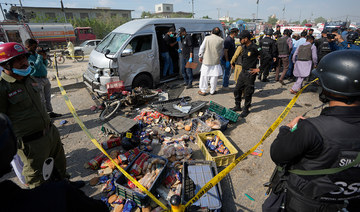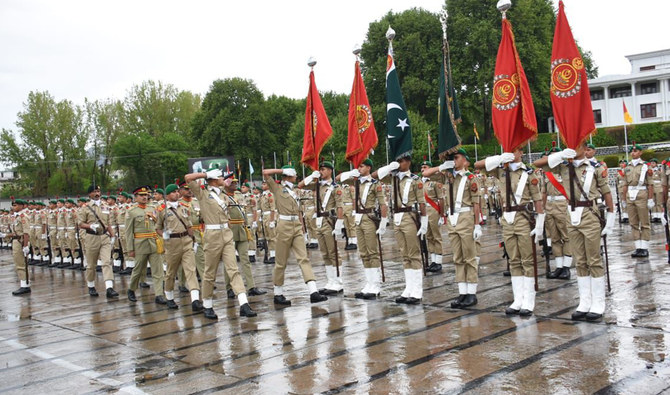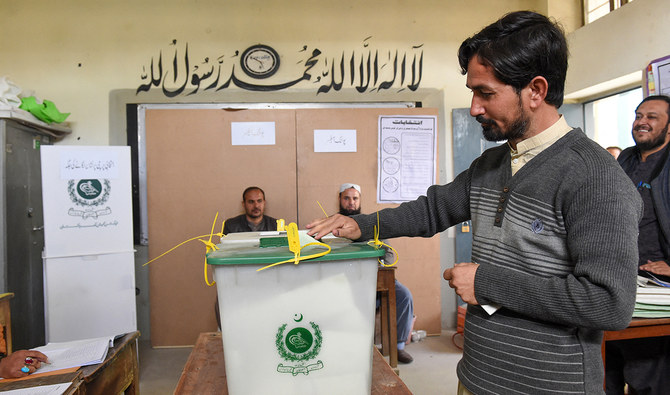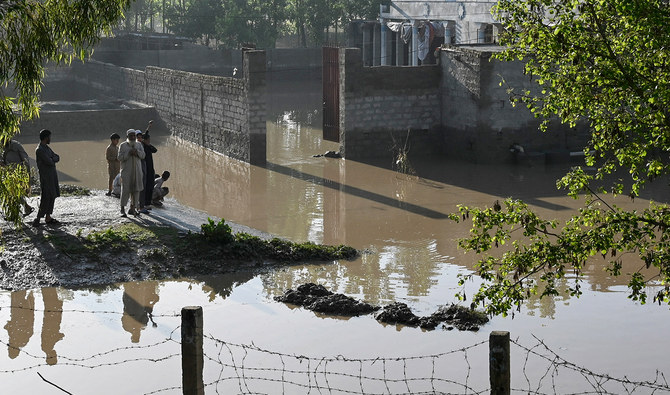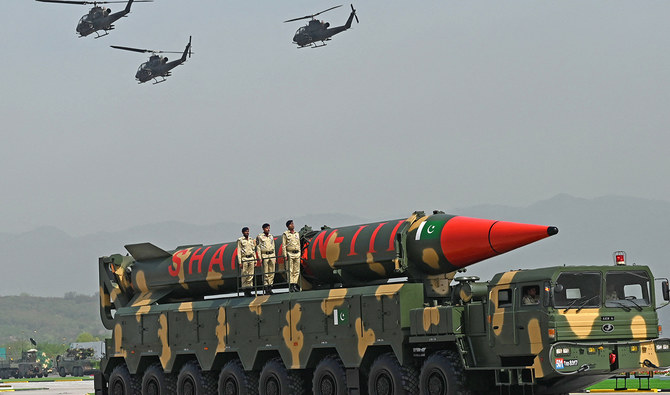KARACHI: Pakistan’s currency and stocks have stabilized after months of poor performance as the country expects to receive $1.17 billion from the International Monetary Fund (IMF) and $4 billion inflows from Saudi Arabia and the United Arab Emirates (UAE), traders and analysts said on Friday, hoping for further consolidation in the coming days.
The Pakistani currency appreciated by 0.14 percent as the US dollar closed at Rs214.65 in the interbank market on Friday. The local currency has appreciated by 11.7 percent since July 28, when it had hit an all-time low of Rs239.94 against the greenback.
“The development at the IMF front and the arrangement of financing from friendly countries to fill financing gap of $4 billion played a key role in rupee's stabilization during the recent trading sessions,” Samiullah Tariq, research director at the Pakistan-Kuwait Investment Company, told Arab News.
After a staff-level agreement in July, the IMF has scheduled its executive board meeting for August 29 for the combined seventh and eight reviews of the $6 billion Extended Fund Facility (EFF) Pakistan availed in 2019. The South Asian country is expecting $1.17 billion from the Fund after its board's approval that would unleash further funding from multilateral donors.
Pakistan’s finance minister, Miftah Ismail, on Thursday reiterated that all actions had been taken to meet the IMF conditions for the revival of $6 billion loan program, which was halted in March this year.
The finance minister confirmed that $4 billion for bridging the budget financing gap had been arranged through Saudi Arabia and the UAE, ahead of the IMF meeting.
In another move ahead of the IMF board meeting, the government on Friday appointed Jameel Ahmad as the central bank’s new governor for next five years.
The appointment on the post, which had been vacant since the retirement of Reza Baqir in early May, comes at a time when the South Asian nation is battling historic inflation.
Analysts say the key challenges the incoming central bank governor would be facing include taming high inflation and shoring up forex reserves.
“The top most challenge the governor of central bank would face is to control inflation as in July 2022 it was recorded at 24.9 percent and it is expected that it would remain high in August,” Tahir Abbas, research head at the Karachi-based Arif Habib Limited brokerage firm, told Arab News.
“The second top most challenge would be to build up country’s forex reserves that are at very low level [barely enough] to cater imports of less than two months. The third challenge would be setting a monetary policy that enables to counter inflation by avoiding recession,” he said.
“The fourth challenge would be to review the schemes announced by the central bank, including the Roshan Digital Accounts to reverse the withdrawal trend with attractive rate offerings.”
Pakistan’s weekly inflation rose by 3.35 percent to reach 42.31 percent on a yearly basis, mainly due to hike in food prices, according to data released by the country's statistics bureau on Friday.
Amid higher inflationary trend, the central bank is scheduled to announce on August 22 its monetary policy for the next two months.
According to a survey conducted by Topline Securities brokerage house, 56 percent of the participants expect no change in the policy rate, which stands at 15 percent. Around 43 percent participants anticipate an increase, whereas 1 percent expect a decrease in policy rate.
Pakistan’s stock market also stabilized during the week though it closed bearish with 210 points down on Friday, mainly due to profit-taking and investors remaining on the sidelines ahead of the monetary policy announcement on Monday.
“Continuing its momentum, KSE-100 Index gained 0.96 percent on WoW (week-on-week) basis, which can be attributed to the news that the IMF has scheduled its board meeting for August 29 after getting confirmation from bilateral friends such as Saudi Arabia, the UAE, and Qatar for bridging the financing gap of $4 billion,” the Topline Securities report said.
Pakistan's stock index increased by 6.74 percent over the course of first two weeks of August and recorded a gain of 376 points during the week ending on Friday.



